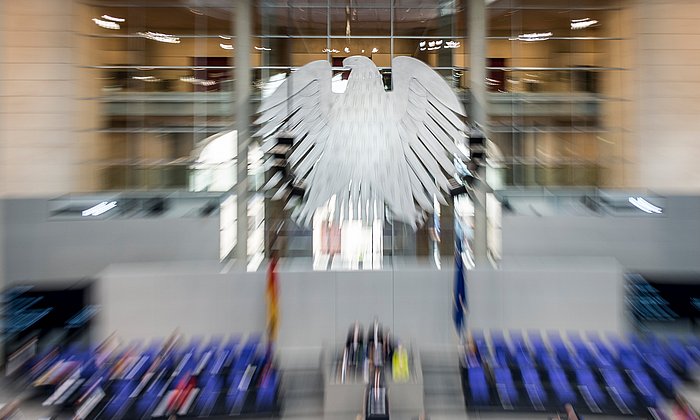Impacts of unexpectedly strong results of right-wing populists
How populists’ election results lead to far-right demonstrations

Social norms are highly dependant on people’s assumptions about what others think. That also means that norms can change with new information on the attitudes of others, for example with the publication of election results. The impact of electoral successes of right-wing populist parties in this regard has previously been studied primarily in connection with rises in hate crime and changes in future voting intentions. Dr. Felix Hagemeister of the Hochschule für Politik (HfP) at the Technical University of Munich (TUM) has now investigated the link between electoral results of the German party Alternative für Deutschland (AfD) and the frequency of demonstrations by right-wing extremists.
For his study, Felix Hagemeister examined polling numbers for the AfD in the lead-up to 10 elections in German federal states between September 2013 and September 2017 and the party’s results in the elections. He collected electoral results both at the state level and in all municipalities in the states in question. For the same period, he used responses from the federal government to parliamentary enquiries to determine when and in which municipalities right-wing extremist demonstrations occurred. Most of the 1300 such demonstrations supported xenophobic demands.
30 percent increase in probability of far-right protests
The analysis of the data shows a clear link between unexpectedly high vote shares for the AfD at the state level and far-right demonstrations – namely in municipalities where the party had a comparatively low share of votes, and can thus be seen as relatively liberal. When the polling institutes underestimated the party’s state-wide results, there was a roughly 30 percent increase in the likelihood of far-right protests in municipalities where the AfD’s vote share was 10 percentage points below the state average. If the number of demonstrations increased in a state, it remained at the higher level for about a year. The number of demonstrators was then larger than the average at the right-wing extremist rallies included in the data. This effect lasted around three months. The study identified these effects for the period starting in mid-2015 after the party’s rightward shift in terms of its policy platforms and personnel.
A comparison with data from the Socioeconomic Panel, a representative long-term Germany-wide survey, confirms that this link was particularly strong in areas where AfD positions are less widely held. It was also more evident in regions where people care about the opinions of others.
“In a democratic country like Germany, racism is socially unacceptable. So latently xenophobic individuals must consider how openly they wish to display their attitudes in public,” says Hagemeister. “The surprise that right-wing populists got more votes in their state than expected obviously convinces them that they and their attitudes are more socially acceptable than they thought. This applies especially if they live in a relatively liberal area. That’s why we see an increase in the number of people willing to march in support of right-wing extremist slogans in these municipalities.”
No causal link to strategic decisions
Hagemeister was able to rule out a link between these results and strategic decisions by extreme right-wing parties, associations or other organizations. To do this, he examined the organizers of the demonstrations. The effects were most pronounced when rallies were registered by persons who could not be identified with any of these institutions.
The results were also adjusted for such factors as the arrival of refugees, the unemployment rate or demographic criteria. A comparative analysis for a period prior to the founding of the AfD shows that the increase in demonstrations is not a phenomenon that occurs after elections regardless of results.
“Understanding the significance of right-wing populist parties”
“The study shows that electoral successes of new right-wing populist parties can lead to more people being prepared to openly display xenophobic and anti-democratic attitudes,” says Hagemeister. “Demonstrations can in turn be a significant factor in boosting sociopolitical movements. Analysis of this causal chain is an important step towards understanding the significance of right-wing populist parties in the rise of right-wing extremism.”
Hagemeister, F., Populism and propagation of far-right extremism. European Journal of Political Economy (2021). DOI: 10.1016/j.ejpoleco.2021.102116
Dr. Felix Hagemeister holds the Post-Doctoral Fellowship in Global Transformations at the Hochschule für Politik München (HfP).
HfP is dedicated to research and education on the interactions of politics and technology. Furthermore, it investigates political science issues using the methods of data science. It works in conjunction with the TUM School of Social Sciences and Technology, founded in October.
Technical University of Munich
Corporate Communications Center
- Klaus Becker
- klaus.becker@tum.de
- presse@tum.de
- Teamwebsite
Contacts to this article:
Dr. Felix Hagemeister
Hochschule für Politik München (HfP) at the Technical University of Munich (TUM)
Tel: +49 89 289 22798 (Press Office)
felix.hagemeister@tum.de


